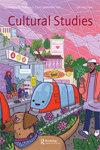杂质的诡计:保罗·吉尔罗伊的《黑色大西洋》与混杂政治
IF 1.6
3区 社会学
Q1 ANTHROPOLOGY
引用次数: 0
摘要
摘要本文将保罗·吉尔罗伊的《黑色大西洋:现代性与双重意识》(1993)置于一个更大的历史和跨国背景下,质疑吉尔罗伊对黑人主体形成和黑人文化生产理论化的非批判性运用。这样做表明,对非裔拉丁美洲和加勒比西班牙语的排斥对作品对黑大西洋及其更广泛的种族政治的概念化产生了至关重要的影响。虽然吉尔罗伊试图否认他所说的“对黑人政治内外流传的‘种族’纯洁性的危险痴迷”,但我认为,吉尔罗伊作品中对混杂性的痴迷同样危险。与吉尔罗伊的假设相反,“creolisation、métissage、mestizaje和hybridity”并没有“超越种族话语”,而是植根于拉丁美洲优生学运动的历史和逻辑中。由于《黑色大西洋》未能作为白人至上主义技术与种族混合的物质历史相抗衡,它呼应了一些优生学逻辑,与它试图对抗的反黑人议程相勾结。在这个过程中,这本书预示着对吉尔罗伊后期作品的种族否定,并给我们留下了不充分的工具来理解种族权力的运作。本文章由计算机程序翻译,如有差异,请以英文原文为准。
The ruse of impurity: Paul Gilroy’s The Black Atlantic and the politics of hybridity
ABSTRACT Placing Paul Gilroy’s The Black Atlantic: Modernity and Double Consciousness (1993) within a larger historical and transnational context, this essay interrogates Gilroy’s uncritical deployment of mestizaje and hybridity to theorize Black subject formation and Black cultural productions. In doing so, it shows that the exclusion of Afro-Latin America and the Hispanophone Caribbean has crucial consequences for the work’s conceptualization of the Black Atlantic and its broader racial politics. While Gilroy seeks to repudiate what he calls ‘the dangerous obsessions with ‘racial’ purity which are circulating inside and outside black politics,’ I argue that the obsession with hybridity that animates Gilroy’s work is no less dangerous. Contrary to Gilroy’s assumption, ‘creolisation, métissage, mestizaje, and hybridity’ do not ‘exceed racial discourse,’ but are rather embedded in the history and logics of the Latin American eugenics movement. As it fails to contend with the material histories of racial mixture as a white supremacist technology, The Black Atlantic echoes some of these eugenicist logics, colluding with the anti-Black agenda that it seeks to contest. In the process, the book prefigures the racial disavowal of Gilroy's later work and leaves us with inadequate tools for understanding the workings of racial power.
求助全文
通过发布文献求助,成功后即可免费获取论文全文。
去求助
来源期刊

Cultural Studies
Multiple-
CiteScore
3.50
自引率
6.70%
发文量
0
期刊介绍:
Cultural Studies is an international journal which explores the relation between cultural practices, everyday life, material, economic, political, geographical and historical contexts. It fosters more open analytic, critical and political conversations by encouraging people to push the dialogue into fresh, uncharted territory. It also aims to intervene in the processes by which the existing techniques, institutions and structures of power are reproduced, resisted and transformed. Cultural Studies understands the term "culture" inclusively rather than exclusively, and publishes essays which encourage significant intellectual and political experimentation, intervention and dialogue.
 求助内容:
求助内容: 应助结果提醒方式:
应助结果提醒方式:


